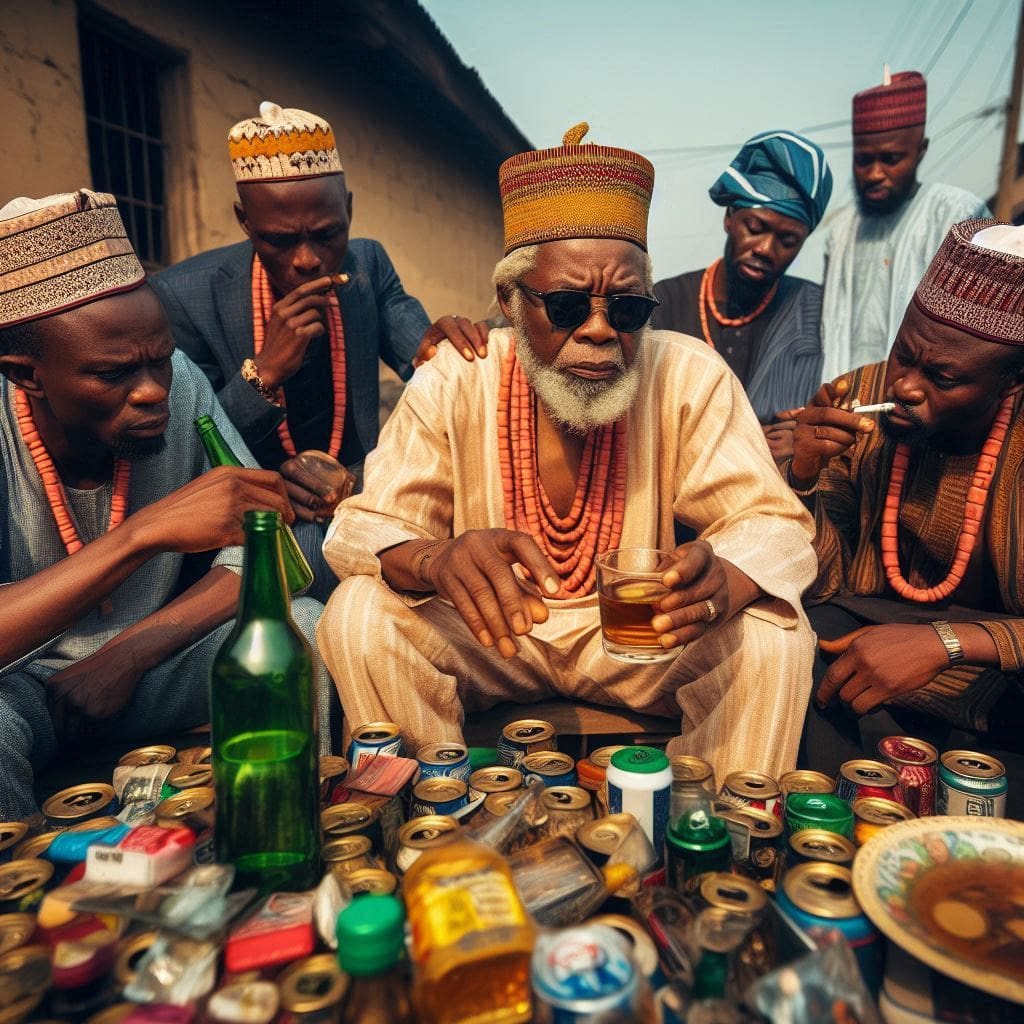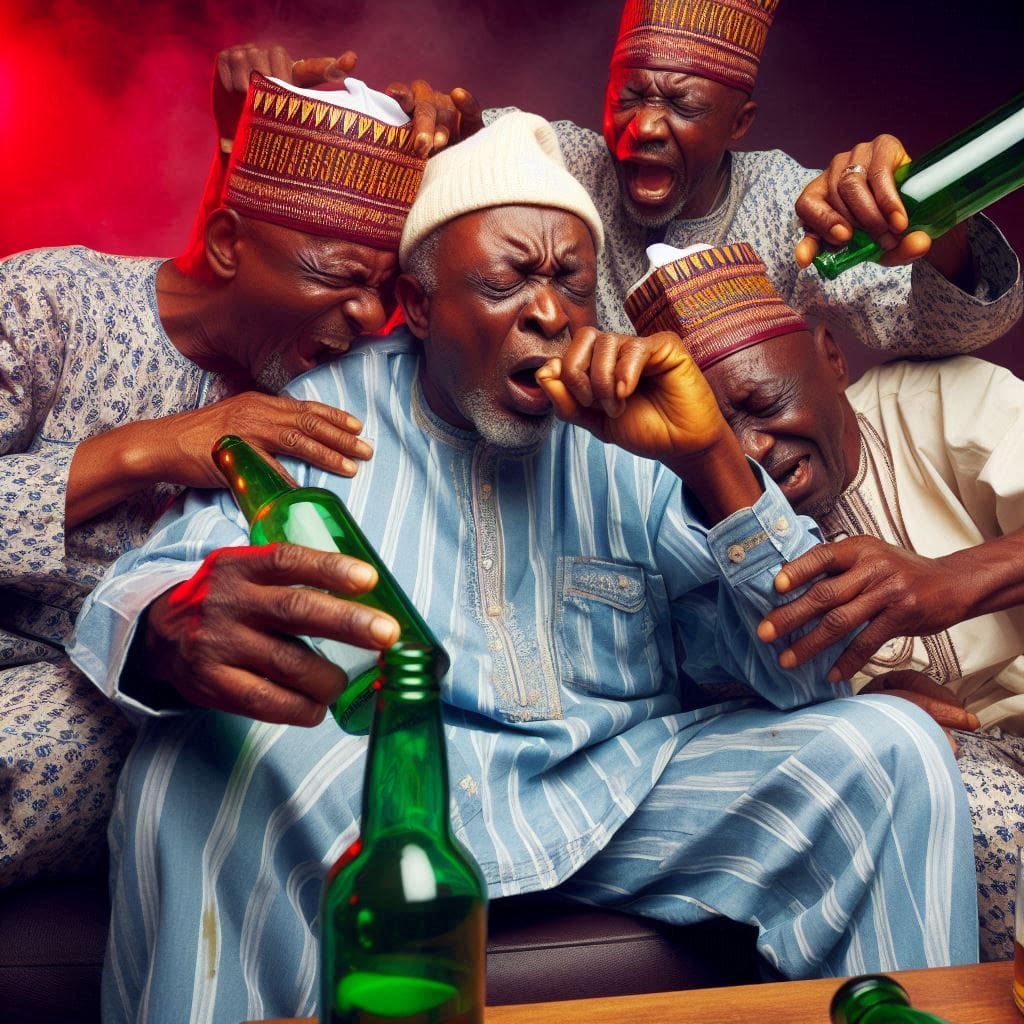
Ever heard someone say a party was “debaucherous”? It sounds fancy, but it basically means things got really wild, often in a way that’s seen as morally wrong or excessive. Think of it as letting loose without any limits, and usually with things like drinking too much, partying too hard, or sexual behavior that’s considered inappropriate.
Imagine a birthday party. Cake, games, maybe some dancing – that’s normal. Now imagine that same party turning into a loud, messy free-for-all with people acting in ways that would shock their grandma. That’s getting closer to debauchery.
Debauchery means living in an uncontrolled and wild way, often by doing too much of things like drinking, partying, or having risky sex. It usually leads to bad habits, poor choices, and harmful results. This article explains what it is, its causes, effects, and how to overcome it in a way anyone can understand.
What Is Debauchery?
Debauchery is a lifestyle full of too much pleasure and little or no self-control. People who live in debauchery often chase fun without thinking about the damage it may cause.
What exactly does “debauchery” involve?
It’s not just about having a good time. Debauchery often includes:
- Excessive Drinking: Way beyond just having a few drinks. Think getting completely drunk and losing control.
- Wild Partying: Parties that go on for days, with no regard for sleep or responsibilities.
- Risky Sexual Behavior: Engaging in sexual activities that are seen as immoral, reckless, or harmful.
- Overindulgence: Too much of anything that feels good in the moment – food, drugs, spending, etc. – to a point where it becomes unhealthy and damaging.
- Lack of Morals: A general disregard for what’s considered right or wrong behavior.
While having fun is normal, debauchery becomes a problem when it takes over your life and harms your health, relationships, and future.
Causes of Debauchery
Many things can lead someone to live a life of debauchery, including:
Why do people engage in debauchery?
There can be different reasons why people might go down this path:
- Seeking Pleasure: At its core, debauchery is often about the intense pursuit of pleasure, without thinking about the consequences.
- Escapism: Sometimes, people turn to excess to forget about their problems, stress, or unhappiness. It’s a way to temporarily escape reality.
- Peer Pressure: In certain groups or situations, there can be pressure to join in on wild behavior to fit in.
- Rebellion: Some people might engage in debauchery as a way to rebel against rules, authority, or societal norms.
- Loss of Control: Sometimes, one drink or one risky act can lead to another, and people can feel like they’ve lost control of their impulses.
Is debauchery always the same?
The idea of what counts as “debauchery” can actually change depending on:
- Culture: What’s considered wild and immoral in one society might be more accepted in another.
- Time Period: Ideas about morality and acceptable behavior have changed throughout history. What was seen as scandalous in the past might be normal now, and vice versa.
- Individual Beliefs: Even within the same culture, people have different personal boundaries and ideas about what’s “too far.”
Signs of Debauchery

Excessive drinking goes beyond casual indulgence and can have serious consequences.
Here are common signs someone is living in debauchery:
- Regular wild partying or late nights
- Drinking or taking drugs too often
- Having unsafe or careless sex with many people
- Ignoring responsibilities at work, school, or home
- Constantly seeking pleasure without thinking of the future
- Feeling empty or regretful afterward, yet doing it again
Effects of Debauchery
Living in debauchery may seem fun at first, but it brings many serious problems, such as:
1. Health Problems
- Liver damage from alcohol
- Addiction to drugs or substances
- Risk of sexually transmitted infections (STIs)
- Lack of sleep, fatigue, and weakened immune system
2. Mental Health Issues
- Depression, anxiety, and mood swings
- Regret, shame, and low self-worth
- Emotional breakdowns
3. Broken Relationships
- Losing trust from loved ones
- Damaging friendships and family bonds
- Hurting romantic relationships due to cheating or lies
4. Legal Trouble
- Getting arrested for drug use, drunk driving, or violence
- Losing job opportunities or being expelled from school
5. Wasted Time and Dreams
- Missing out on growth, goals, and true happiness
- Living with regret later in life
How to Overcome Debauchery
Overcoming it takes discipline, support, and self-love. Here are helpful steps:
1. Admit There’s a Problem
The first step is to be honest with yourself. Real change starts with acceptance.
2. Find Healthier Activities
Replace wild habits with positive ones like reading, sports, learning a skill, or volunteering.
3. Avoid Temptations
Stay away from people, places, or things that trigger bad behavior.
4. Talk to Someone
Speak to a trusted friend, mentor, or therapist. You don’t have to fight alone.
5. Set Goals
Focus on dreams, careers, or relationships that matter. Build a better future.
6. Join a Support Group
Groups like Alcoholics Anonymous (AA) or faith-based groups offer guidance and strength.
7. Practice Self-Respect
Know your worth. You deserve peace, health, and a meaningful life.
Self-Control & Discipline: Your Guide Through Debauchery
We all love a good time, but sometimes things can go too far. That’s where self-control and discipline come in. They’re like your personal safeguards, helping you enjoy life without letting it get out of hand, especially when things get a little wild.
Why Self-Control Matters
Imagine you’re at a huge party. Everyone’s having fun, maybe drinking a lot or trying new things. Self-control means you can still have a great time, but you know when to stop. It’s about:
- Knowing your limits: How much is too much alcohol? When should you say “no” to something risky?
- Making smart choices: Instead of just going with the flow, you think about the consequences. Will you regret this tomorrow?
- Protecting yourself: It helps you avoid bad situations, like getting into arguments, spending too much money, or doing things you’ll truly regret.
The Power of Discipline
Discipline is like training yourself to always use self-control. It’s about building good habits so you don’t even have to think hard about making the right choices. This looks like:
- Setting boundaries: Before you even start, decide what you won’t do. For example, “I’ll only have two drinks,” or “I won’t stay out past midnight.”
- Sticking to your plan: Even when everyone around you is pushing you, your discipline helps you stand firm.
- Thinking long-term: Discipline helps you remember your goals and responsibilities, even when faced with immediate temptations. It’s about prioritizing your well-being over a temporary thrill.
How to Have Fun Without Losing Control
When you have self-control and discipline, you can experience the fun parts of life – the excitement, the freedom – without falling into the trap of debauchery. These tools let you enjoy wild moments responsibly, ensuring your good times don’t turn into bad memories. They’re essential for staying safe and healthy, no matter how wild things get.
Why You Should Leave Debauchery Behind
Letting go of it helps you:
- Improve your health
- Find real happiness
- Build better relationships
- Have a clear mind and purpose
- Live longer and feel fulfilled
Final Thoughts
Debauchery is more than just having a good time. It’s about going to extremes, often involving excessive and morally questionable behavior. While the definition can vary, the potential negative consequences for individuals and their relationships are often significant. Understanding the underlying reasons and the potential dangers can help people make more mindful choices about how they live their lives.
Debauchery may look exciting at first, but it often leads to pain, regret, and emptiness. Real joy comes from balance, discipline, and healthy living. You can always change your path—it’s never too late to choose a better life.



